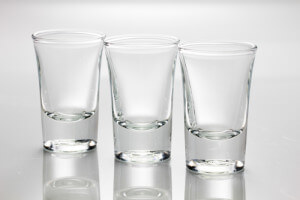Not all states carry laws as tough as California DUI laws. However, California is not the most strict.
Anyone unfortunate enough to face a conviction of driving under the influence in California is familiar with the harsh the penalties. A first-time DUI in L.A. can mean up to 6 months in jail, fines of up to $1,000 or more, probation, a drug or alcohol education program, an ignition interlock device (IID) installed in your car, and expensive higher insurance premiums. You may think California ranks near the top of U.S. states when it comes to DUI penalties, but according to a recent study, California falls somewhere in the middle.
DUI Rankings for All 50 States
Wallet Hub did a survey of DUI laws in all 50 states and Washington, D.C., ranking states from harshest to most lenient. They considered a number of factors in their analysis, including:
- minimum jail time for a first offense DUI;
- number of DUIs before it is considered a felony;
- look-back period in counting DUIs;
- higher BAC penalties;
- fines and fees;
- enhanced penalties for child endangerment;
- mandatory IID installation;
- administrative license suspension period;
- alcohol and drug abuse treatment programs;
- impounding vehicles after a DUI;
- use of sobriety checkpoints; and
- increased insurance rates.
Who Came Out on Top
California DUI laws are not as intense as other states. Neighboring Arizona had the strictest DUI laws, with a minimum 10-day jail sentence even for a first offense. Coming down much softer on DUIs are the District of Columbia and South Dakota, where even a second DUI carries no minimum jail sentence.
California ranked 34th when it came to strict DUI laws. However, it is not clear whether the survey included the limited use of mandatory IID installation after a first offense DUI. California is testing mandatory IIDs as a pilot program in four counties: Alameda, Los Angeles; Tulare and Sacramento. Lawmakers are considering taking the program statewide.
Understandably, states are following the trend of enacting even stricter laws aimed at drunk driving. Starting July 1st, a new IID law went into effect in Connecticut. Now all first offense DUI convictions require an IID in their car, whereas before it was only for repeat offenders. Now, about half of all states have an IID requirement for a first-time DUI.
A Wisconsin lawmaker proposed a new law. According to Mothers Against Drunk Driving (MADD), the law closes a loophole in the state’s IID requirements. Consequently, it creates a type of license where violating IID requirements is a criminal offense, rather than just a citation. Wisconsin requires IIDs for repeat drunk drivers, those who refuse a chemical test, and for first-time offenders with a BAC of 0.15% or higher.
Washington state is considering strengthening their DUI laws as well. In most states, a third or fourth DUI within the specified look-back period is considered a felony. In Washington, repeat offenders wait until their fifth DUI before they face a felony charge. Due to this, State Senators have introduced a bill that would lower the felony DUI number to the 4th DUI.
Alternative Punishments for DUI
While some state lawmakers, advocates, and groups such as MADD fight for stricter DUI penalties, others are moving towards more preventative measures. California DUI laws now include increasing the use of IIDs after a DUI conviction. This prevents a driver from taking to the road if they don’t blow a clean breath. California may make this move to bring the mandatory IID program to the rest of the state if the pilot program succeeds.
What to do if You Get Arrested for a DUI
If you’re arrested for a DUI, Start Here first.
The Top Attorneys in Los Angeles can be contacted here.
ABOUT OUR CRIMINAL DEFENSE LAW FIRM
We have the best DUI attorneys on hand to answer your calls and walk you through your individual situation 24/7. We don’t sleep so that you can.
Please think and plan before you drink. California DUI laws are stringent. Enjoy yourself and be smart! 1800NOCuffs is the number you hope you never need – but should always have on hand.
#1800NoCuffs
Because no one looks good in handcuffs #unlessyoureintothatsortofthing
http://www.instagram.com/1800nocuffs
Connect with Attorney Darren Kavinoky on Social Media
http://www.twitter.com/darrenkavinoky
http://www.facebook.com/darrenkavinokyfanpage




